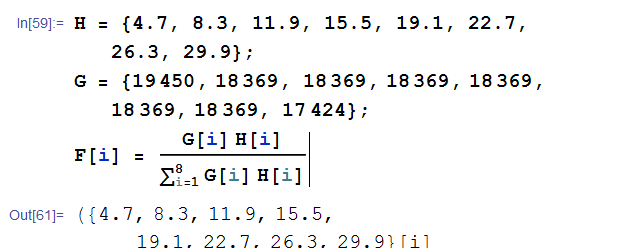I have to calculate:

How can I create such a sum? Do I have to set the factors of each term manually (one by one), like G1 = 1, H1 = 1, G2 2, H2 = ....?
Update

Addtional Questions:
How can I store te results into another List? (In this example, the list
F)Sometimes, a variable turns blue and does not get calculated in expression. How do I fix this?
